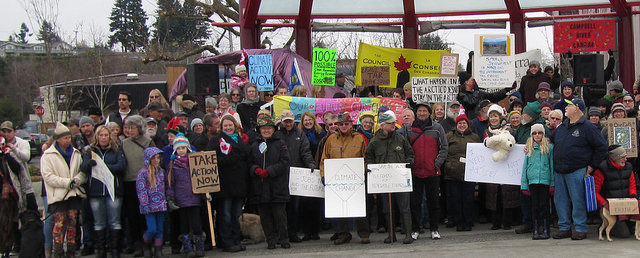rabble is expanding our Parliamentary Bureau and we need your help! Support us on Patreon today!
With the COP 21 climate talks beginning in Paris this Monday, the indications are that the critical aspects of the Trudeau’s climate policy fall well short of what is needed.
Those key areas include:
1. The agreement won’t be legally binding.
The Canadian Press now reports, “Canada’s environment minister says she hopes a durable, binding agreement will be reached at next week’s climate summit in Paris. But any eventual targets set by countries involved in the negotiations likely won’t be legally enforceable internationally because the United States isn’t prepared to accept that as a condition for reaching a deal, Catherine McKenna said Friday before leaving for the French capital. ‘We don’t expect that the targets will be internationally legally binding,’ McKenna said during a teleconference, suggesting that Canada hopes instead that any deal reached in Paris includes provisions to effectively shame countries into meeting their promised greenhouse gas reduction goals.”
And even though the agreement won’t be legally binding, the Trudeau government has not responded to our demand that a provision be put into the agreement that would shield national climate measures from investor-state dispute settlement (ISDS) challenges through (legally-binding) trade agreements such as the North American Free Trade Agreement (which was ratified by the Liberal government of Jean Chretien) and the Canada-European Union Comprehensive Economic Trade Agreement (which Trudeau has instructed his trade minister to “implement”.)
2. Weak emissions reduction target.
The Liberal government has said that it will use the previous government’s emission reduction target as its “floor.” The Harper government had promised to 30 per cent below 2005 levels by 2030, which translates to 14 per cent below 1990 levels by 2030. This is an extremely weak target given the European Union has pledged a 40 per cent reduction below 1990 levels by 2030.
There is no indication that the Trudeau government — even after its promised meeting with provincial premiers 90 days after the climate summit — intends to triple Canada’s current emissions reduction target.
3. Not science-based.
A study by researchers from University College London have concluded that 85 per cent of the tar sands cannot be burned if the world is to limit climate change (as it must) to 2 degrees Celsius. More specifically, this means that no more than 7.5 billion barrels of oil can be extracted from the tar sands by 2050. At the present rate of extraction (about 2.98 million barrels per day), Canada would hit that maximum limit within 7 years.
And yet, foreign minister Stephane Dion has indicated he supports the sustainable development of the tar sands and the Energy East pipeline (which would move more than 400 million barrels of oil a year). The Trudeau government has also praised the Alberta’s climate plan that will allow for a 43 per cent increase in the tar sands (to a cap of 100 megatonnes a year of emissions in 2030).
4. Insufficient climate aid.
On Friday, the CBC reported, “Canada today promised $2.65 billion over the next five years to help developing countries fight climate change. That amount translates to $300 million in 2016-17 and will peak at $800 million in 2020-21. In October 2015, the Climate Action Network stated that Canada’s “fair share” would be $4 billion a year.
5. Not committed to a 100 per cent clean economy.
At the G7 summit in Germany this past June, German chancellor Angela Merkel pushed the G7 leaders to agree to zero carbon emissions by 2050. Then-prime minister Stephen Harper was instrumental in preventing agreement on Merkel’s target, shifting it instead to an “aspirational” goal to stop burning fossil fuels by 2100.
Trudeau did not use the opportunity of the Nov. 15-16 G20 summit in Turkey to signal his support for Merkel’s target in the lead-up to COP 21 talks.
A team from the Council of Canadians (including chairperson Maude Barlow, trade campaigner Sujata Dey, organizer Diane Connors and organizer Claudia Campero Arena) will be in Paris for the COP 21 negotiations. In addition, 34 Council of Canadians chapters will be marching on Sunday (the day before the talks begin) to send the strong message that a 100 per cent clean economy by 2050 is both possible and necessary.
For more on our climate justice and energy campaign, please click here.
rabble is expanding our Parliamentary Bureau and we need your help! Support us on Patreon today!



